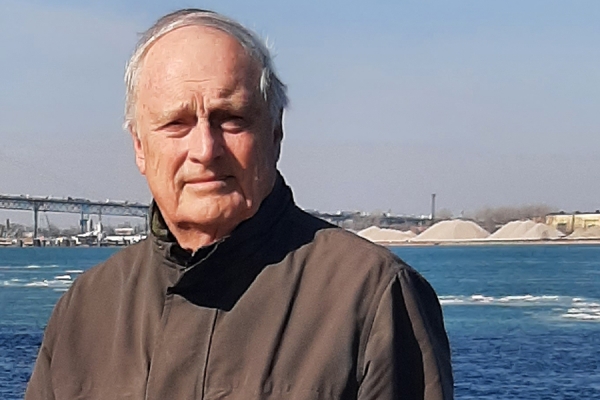 Professor emeritus Frank Simpson has endowed an award to fund student research into solutions to environmental problems.
Professor emeritus Frank Simpson has endowed an award to fund student research into solutions to environmental problems.
A new scholarship endowed by a retired professor in the School of the Environment will assist students in putting their knowledge of natural processes to work in finding possible, lasting solutions for present-day economic and environmental problems.
Earth Science Applications for Sustainable Development is endowed for $50,000. It will fund two annual awards of $1,000 — one each for a female and a male candidate selected by a committee formed by the director of the School of Environment.
Benefactor Frank Simpson says the student research may make significant contributions to achieving the goals of the United Nations’ 2030 Agenda for Sustainable Development.
“The local area is rich in possible opportunities for research that could bring benefit to the present population, while also considering the needs of future generations,” says Dr. Simpson.
“These could include the management of water resources, soil conservation, land use, environmental impact, biodiversity, and the integration of economic development and environmental protection.”
Simpson says he created the endowment in the belief that the successes of his past projects in diverse climatic settings could be repeated in North America as the climate changes. The control of water movement, slope modifications and establishment of a vegetation cover featured in each project, which include work on rural water supply in Maharashtra State, India; the erosion of catastrophic gullies in Nigeria; and the stabilization of part of the left bank of the Dnipro River in Ukraine.
The results are still visible on the satellite imagery of Google Earth 25 years later, notes Simpson. The work in India was recognized as a Success Story in Sustainable Development by the UN Department of Economic and Social Affairs and as a Best Practice Using Indigenous Knowledge by the UNESCO Management of Social Transformations Program.
Third- and fourth-year students in good standing may propose projects for the Earth Science Applications for Sustainable Development through the School of Environment office. Proposals should include a summary of up to 300 words and a budget.
